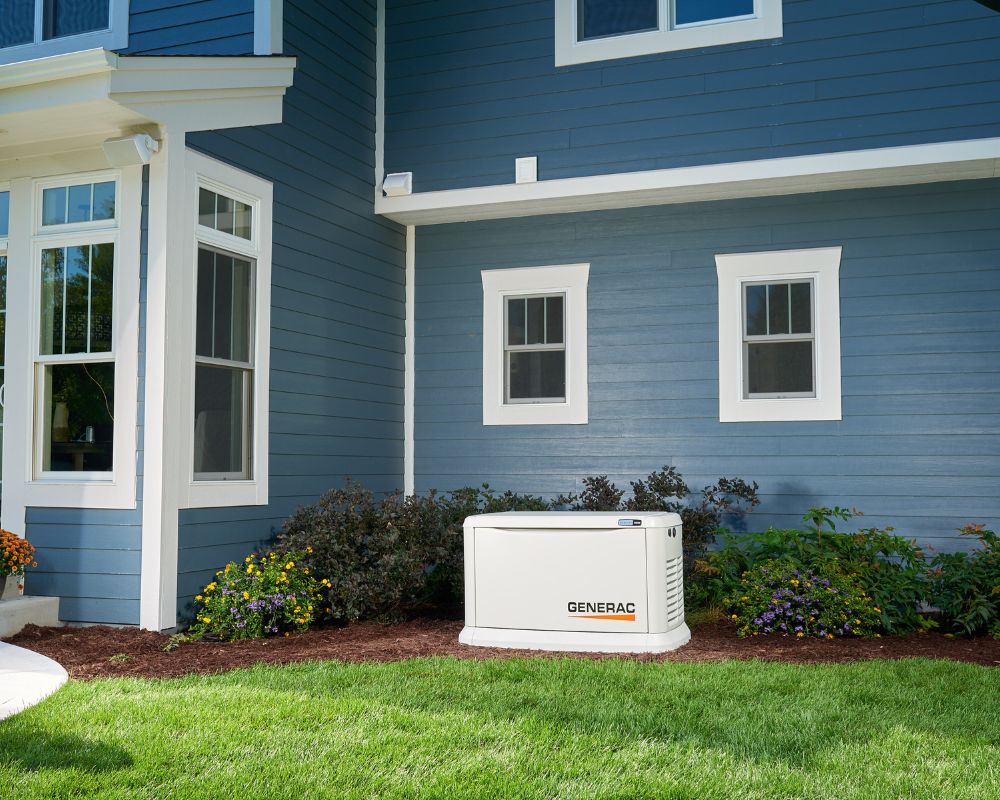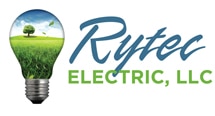How Do I Select A Home Standby Generator?
Having emergency generator power gives you peace of mind all year long – not just when you’re in the middle of a blackout. By having a whole home standby generator you know that even if your neighborhood’s power is knocked out during a summer thunderstorm or winter ice storm, your home will still be bright and comfortable.
However, choosing a generator can be an overwhelming process and it’s common for homeowners to get frustrated trying to figure out what the best home standby generator will be for their specific needs.
Today we’ll look at how to choose a generator and what factors you need to consider as you’re looking for one for your home. Here at Rytec we install Generac backup generators, as they offer tremendous reliability, durability, and value.
How do whole house generators work?
First, while there are whole home generators with manual transfer switches – we always recommend that you choose a model equipped with an automatic transfer switch (ATS). What this means is that the generator automatically switches on to provide backup power when there’s a blackout. Generators with an ATS can begin producing power in as little as a minute, meaning that your time in the dark is kept to a minimum.
While manual transfer switches are less expensive – automatic transfer switches provide both safety and convenience. They safely connect your generator to your breaker panel, activate if the power goes off, and then switch off when the power is restored.
For detailed information about how generators work, check out our blog How Do Home Generators Work?
How do I choose a home standby generator?
There are a few factors to keep in mind when choosing a home standby generator:
- What fuel source do you want to use? The typical options are
- Diesel
- Liquid propane
- Natural gas
- Who is in your household, and do they need any specialized care?
- Are there regulations from your municipality, county, state, or HOA regarding home standby generators?

Fuel Sources
When it comes to fuel sources there is no one size fits all answer as local price and availability varies.
A natural gas generator is the ideal choice for many homeowners in the Midlands because most homes here already have a natural gas hookup and natural gas almost never goes out at the same time as the electrical grid. It combines price with reliable availability and eliminates the need for a storage tank.
Of course, not everyone lives in a home with a natural gas supply, and in these cases diesel and propane are going to be your only options and both require an onsite fuel tank. For a given size fuel tank, diesel will provide longer lasting power than propane – but the difference is typically not huge.
Your Individual Power Requirements
Your household needs have a big impact on the kind of generator or how large of a fuel tank you need. Do members of your household rely on medical devices that require electricity? Do you have very young or very old family members or pets living with you who will be more heavily impacted without air conditioning or heating?
Beyond your family’s needs, consider essential equipment like well and sump pumps.
If your home is on well water then you need to factor in the power requirements to keep your well pump operational during blackouts. If you live in an area prone to flooding, you want to ensure your sump pump is always getting the power it needs to stay running.
WHAT SIZE STANDBY GENERATOR DO I NEED?
Standby generator sizing is one of the most important things to keep in mind as you decide what type of generator is best for your family. We recommend choosing a home backup generator which offers enough capacity to power your entire home. By turning off unnecessary devices you’ll be able to have your fuel tank last longer – but you won’t ever need to worry about exceeding your generator’s capacity.
Your electrical contractor will correctly size your generator based on your home’s size, what you’d like to power, and will take into account factors like startup current of your HVAC unit.
To get a basic idea of your power needs, Generac provides a free online calculator to get you started.
WHAT IS REQUIRED TO INSTALL A BACKUP GENERATOR?
To install a backup generator, you’ll need a qualified contractor, permits, and a post-installation inspection.
CONTRACTORS
Your primary contractor to install a backup generator will be an electrician. However, you may also need to work with a plumber for natural gas hookups and a concrete installer for a generator pad.
At Rytec Electric we are licensed to perform both electrical installations and natural gas installations, and work with our customers to make the permitting process as easy as possible.
Keep in mind that a DIY installation of a home backup generator is typically not legal as most states require the final electrical connections to be performed by a licensed electrician. We recommend against DIY options even where they are legal as whole home generators are powerful and present serious risks if installed incorrectly.
PERMITS
The rules for permitting vary by locality so we can only speak with authority about our area. However, in most parts of the US you should expect to need a permit for installing a backup generator.
In Lexington and Richland counties you absolutely must get a permit. Your municipality may have additional restrictions or permits for backup generators.
We recommend you let your contractor apply for all applicable permits as this provides homeowners better liability protection. In Lexington County, if the permit is in your name, you may be held liable for any faulty work your contractor does.
In Richland County, there are certain exemptions available to homeowners, as well as instructions for homeowners who need a permit or inspection.
Keep in mind that if your neighborhood has an HOA, there’s a possibility they have regulations to follow, too. Typically this involves placement and noise output of standby generators. Check your HOA bylaws before proceeding with any major upgrades.
INSPECTION
Ideally, your electrical contractor will take care of getting your inspection done. An inspection is a final check from a third party expert to ensure your generator has been properly installed. If the inspector finds any issues or errors, they’ll notify you and/or the contractor so they can be fixed.
Once your generator has passed inspection, your generator will be monitoring your home’s power and keeping you safe.
STAY COMFORTABLE AND SAFE IN YOUR HOME
Selecting a standby generator is a great way to gain peace of mind. Even when extreme weather rolls through the area, your home will be a refuge of light and comfort.
At Rytec Electric, we help make the process of selecting a generator to be as worry-free as possible. We’re not only licensed and insured, but all of our work includes a one-year labor warranty. Plus, as Generac partners, we’re certified to sell and install the brand’s high-quality generators and ensure you receive the fullest product warranties.
Ready to talk to an electrician about choosing or installing a backup generator? Let’s get started!
